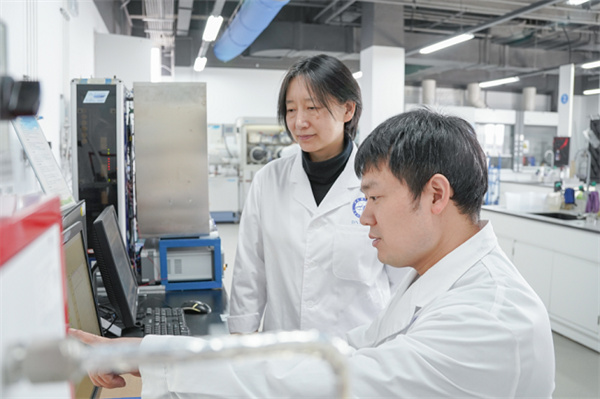
Professor Chen Ping (left) and associate professor Cao Hujun discuss their work in a laboratory at the Dalian Institute of Chemical Physics in Liaoning province. [Photo by Liang Xiao/For chinadaily.com.cn]
Chinese researchers achieved a superionic conduction of negatively charged hydrogen atoms at ambient temperatures recently, which they say promises to pave the way to advanced clean energy storage and electrochemical conversion.
"Materials that exhibit superionic conduction at ambient conditions would provide huge opportunities for constructing new solid-state hydride batteries, fuel cells and electrochemical cells", said Chen Ping, a professor at the Dalian Institute of Chemical Physics of the Chinese Academy of Sciences.
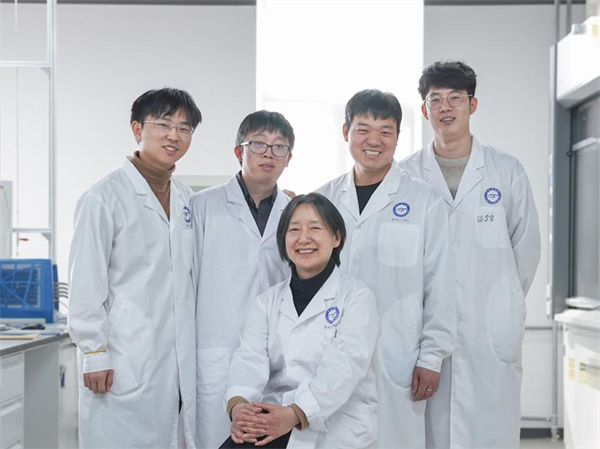
Members of the research team at the Dalian Institute of Chemical Physics in Dalian, Liaoning province. [Photo provided to chinadaily.com.cn]
The study, conducted by a research team led by Chen and associate professor Cao Hujun, was published in the journal Nature on April 5.
It demonstrated a technique to achieve room-temperature all-solid-state hydride cells.
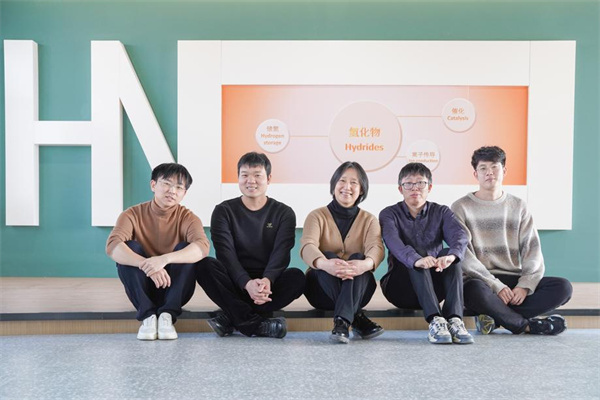
Members of the research team at the Dalian Institute of Chemical Physics in Dalian, Liaoning province. [Photo provided to chinadaily.com.cn]
According to Chen, hydride ion (H−) conductors have emerged as promising candidates for energy storage.
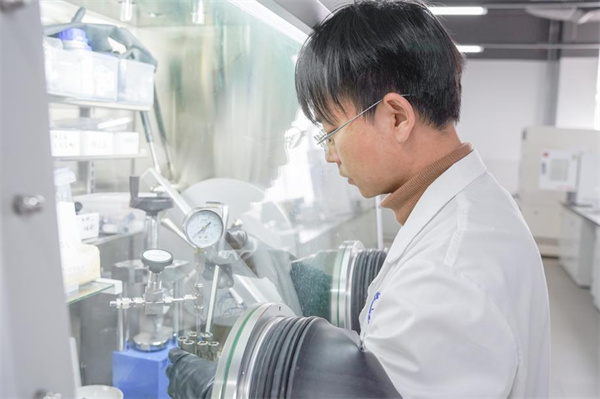
A researcher works at the Dalian Institute of Chemical Physics in Dalian, Liaoning province. [Photo provided to chinadaily.com.cn]
"With fast hydride ion conduction and a high ion transfer rate, the deformed Lanthanum hydride enables a hydride ion battery to operate at room temperature or lower," Chen said.
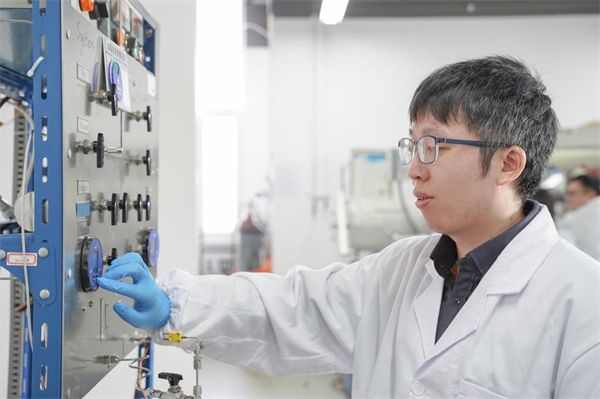
A researcher works at the Dalian Institute of Chemical Physics in Dalian, Liaoning province. [Photo provided to chinadaily.com.cn]
She said the team's short-term goal is to demonstrate a new all-solid-state hydride ion battery that has practical potential.